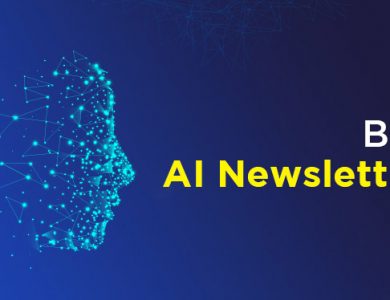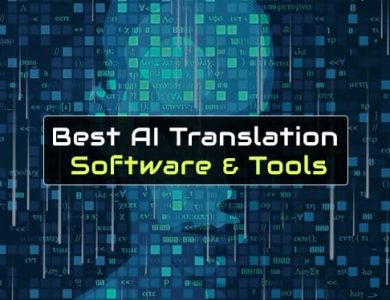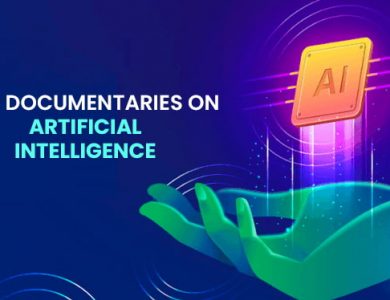Top 6 NLP Certifications

In today’s data-centric universe, the magnitude of linguistic prowess cannot be undermined. From conversational AI entities and virtual guides to the profound depths of sentiment analysis and linguistic translation, NLP has blossomed as an epoch-making domain. With its far-reaching implications spanning industries as diverse as healthcare, finance, marketing, and customer service, NLP has become the holy grail for professionals striving to forge ahead in their illustrious careers.
Amid an ever-ascending demand for NLP, certifications serve as sacred credentials to confer an edge and fling open the gates to an awe-inspiring multitude of career vistas.
Whether you aspire to traverse the corridors of data science, are a devotee of linguistics, or are an enthusiast yearning for self-improvement, these top NLP certifications can propel your career forward and provide you with a solid foundation in this fascinating discipline.
Significance of NLP Certifications
- Enhancing Career Prospects:
In today’s competitive job market, having a specialized skill set can significantly enhance your career prospects, and NLP certifications offer just that. Companies across various industries seek professionals with NLP skills to develop intelligent chatbots, improve customer experience, analyze large volumes of textual data, and extract valuable insights from unstructured information.
- Validating Expertise:
NLP certifications serve as a valuable validation of your expertise in this specialized domain. These certifications are offered by reputable organizations or institutions that have established themselves as authorities in the field of NLP. By earning a certificate from a recognized entity, you gain a credible endorsement of your knowledge and skills, which can be valuable in building trust with employers, clients, and colleagues.
- Staying Updated with Advancements:
The field of NLP is constantly evolving – with new techniques, algorithms, and tools. NLP certifications provide a structured learning experience to ensure you stay updated with the latest advancements and industry best practices. The coursework and curriculum of these certifications are designed to cover a broad range of NLP topics, including semantic analysis, sentiment analysis, text generation, language models, named entity recognition, and more.
- Potential Industries and Job Roles:
Job roles requiring NLP span fields such as data science, machine learning, artificial intelligence, linguistics, and software engineering. With an NLP certification, you can pursue roles such as NLP engineer, data scientist, research scientist, computational linguist, language analyst, chatbot developer, etc. These certifications provide a versatile skill set that can be applied in diverse domains, offering flexibility and opportunities for growth in your career.
6 Best NLP Certifications
Join us as we unravel the best NLP certifications that can help you unlock new possibilities, enhance your expertise, and set yourself apart in the exciting realm of Natural Language Processing.
We’ll explore the key features, eligibility criteria, and skills gained through each certification, shedding light on their unique offerings – from comprehensive coursework and practical projects to real-world applications and success stories.
1. Microsoft Certified: Azure AI Fundamentals
The Microsoft Certified: Azure AI Fundamentals certification is offered by Microsoft, one of the leading technology companies in the world. Microsoft’s certifications are highly-regarded and recognized globally, making this certification a valuable addition to your professional profile.
Prerequisites and Eligibility Criteria
To pursue the Azure AI Fundamentals certification, there are no specific prerequisites. It is for individuals from technical and non-technical backgrounds interested in AI who want to gain a foundational understanding of AI concepts and how they can be applied in the Azure ecosystem.
Key Topics Covered
This certification covers essential AI concepts and techniques, focusing on their implementation using Microsoft Azure services. Key topics include:
- Understanding AI workloads
- Machine learning
- Natural Language Processing
- Computer Vision, and
- Conversational AI
| On Completion
You will gain a solid understanding of AI technologies, their use cases, and how to leverage Azure services for AI development |
Real-World Applications
The Azure AI Fundamentals certification equips you with the skills to build AI-enabled solutions using Azure’s AI services, such as Azure Cognitive Services, Azure Machine Learning, and Azure Bot Services. These tools empower you to create language understanding models, build chatbots, implement image recognition systems, and more.
Success Stories
Individuals who have obtained the Microsoft Certified: Azure AI Fundamentals certification have experienced numerous benefits. Many professionals have reported increasing job opportunities and career growth. Employers value the practical skills and knowledge gained through this certification, leading to enhanced credibility and recognition within the industry.
2. TensorFlow Developer Certificate Program
The TensorFlow Developer Certificate Program is offered by the TensorFlow team at Google. TensorFlow is an open-source ML framework for developing and deploying deep learning models. This certification program validates your proficiency in using TensorFlow for building and training machine learning models.
Prerequisites and Eligibility Criteria
To pursue the TensorFlow Developer Certificate, it is recommended to have a basic understanding of machine learning concepts and Python programming. Familiarity with TensorFlow and its ecosystem is beneficial but not mandatory. This certification is suitable for both beginners looking to establish a strong foundation in TensorFlow and experienced practitioners seeking to validate their expertise.
Key Topics Covered
The TensorFlow Developer Certificate program covers a comprehensive range of topics essential for effectively utilizing TensorFlow. These include
- Understanding TensorFlow architecture
- Building and training neural networks
- Convolutional Neural Networks or CNNs
- Natural Language Processing
- Time series forecasting, and
- Transfer learning
| On Completion
You will learn how to develop and deploy machine learning models using the TensorFlow framework. Also, you will understand how to import and prepare data, build and train machine learning models, evaluate the performance of machine learning models, and deploy machine learning models to production. |
Real-World Applications
The certification program includes hands-on exercises and practical projects that allow you to apply your knowledge to building and training machine learning models using TensorFlow, including tasks such as image classification, text classification, and time series analysis. These projects provide valuable experience in solving real-world problems and building practical machine-learning applications.
Success Stories
Many individuals who have obtained the TensorFlow Developer Certificate have shared their success stories and positive experiences. Professionals report that this certification has significantly enhanced their credibility as TensorFlow practitioners, leading to new job opportunities and career advancements. Employers value the TensorFlow Developer Certificate as evidence of practical TensorFlow skills, making it a valuable asset in the competitive field of machine learning.
3. Certified Natural Language Processing Expert Certification
The Certified Natural Language Processing Expert Certification by the International Association of Business Analytics Certifications (IABAC) is a globally recognized certification program. IABAC is a reputed certifying body known for its rigorous evaluation processes and industry relevance. Their certification validates your expertise in NLP techniques and your ability to apply them to real-world scenarios.
Prerequisites and Eligibility Criteria
The Certified Natural Language Processing Expert Certification is designed for professionals with a background in data science, machine learning, or related fields. Prior knowledge of programming languages, statistics, and basic machine learning concepts is recommended. Additionally, hands-on experience in NLP projects or applications is beneficial. The certification program is suitable for experienced practitioners and individuals seeking to specialize in NLP.
Key Topics Covered
The Certified Natural Language Processing Expert Certification covers topics essential for becoming proficient in NLP. These include:
- Text preprocessing
- Language modeling
- Information extraction
- Sentiment analysis
- Named entity recognition
- Text classification
- Sequence-to-sequence models, and
- Deep learning for NLP
| On Completion
You will acquire advanced skills in natural language processing (NLP) techniques and gain a deep understanding of the underlying algorithms and methodologies. |
Real-World Applications
The certification program emphasizes practical application and includes projects that allow you to work on tasks such as sentiment analysis of social media data, text summarization, chatbot development, and document classification. These projects provide hands-on experience and demonstrate your ability to implement NLP solutions using industry-standard tools and frameworks.
Success Stories
Professionals who have earned the Certified Natural Language Processing Expert Certification by IABAC have experienced substantial career benefits. The certification is highly regarded by employers and industry experts, offering recognition of your expertise in NLP. Many certificate holders have reported career advancements, higher job prospects, and increased credibility within the field of NLP.
4. Natural Language Processing with Deep Learning by Stanford University
The Natural Language Processing with Deep Learning certification is offered by Stanford University, a renowned institution known for its expertise in cutting-edge research and education. This certification program focuses on the intersection of natural language processing and deep learning, providing participants with a deep understanding of the latest techniques and advancements in the field.
Prerequisites and Eligibility Criteria
The Natural Language Processing with Deep Learning certification is designed for individuals with a strong foundation in programming and machine learning concepts. Familiarity with Python and a basic understanding of probability distributions are recommended prerequisites. This certification is suitable for professionals, researchers, and students looking to advance their knowledge and skills in NLP with a focus on deep learning methodologies.
Key Topics Covered
The certification program covers a comprehensive range of natural language processing and deep learning topics. Key areas of focus include
- Dependency parsing
- Neural machine translation and attention
- Neural networks
- RNNs and language models
- Transformers and pre-training
- Using PyTorch from scratch
- Word vectors
| On Completion
You will have a substantial understanding of the theoretical foundations and practical techniques for building advanced NLP models with deep learning. |
Real-World Applications
The certification program incorporates practical projects that allow you to work on tasks including sentiment analysis, text generation, language translation, and dialogue systems. These projects provide hands-on experience designing and implementing NLP models using deep learning frameworks, enabling you to tackle complex NLP challenges.
Success Stories
The Natural Language Processing with Deep Learning certification from Stanford University is regarded highly within the industry and academic circles. Professionals and researchers who have obtained this certification have reported significant career advancements, expanded research opportunities, and enhanced knowledge in NLP and deep learning. The certification’s affiliation with Stanford University and its rigorous curriculum contribute to its recognition as a prestigious credential.
5. NLP With Python Certificate Program by Cornell University
The NLP With Python Certificate Program by Cornell University offers participants a comprehensive understanding of natural language processing techniques using the Python programming language. Cornell University is renowned for its expertise in language and information processing, making this certification a valuable credential in the field of NLP.
Prerequisites and Eligibility Criteria
The NLP With Python Certificate Program is designed for individuals with a basic understanding of programming and some familiarity with Python. While prior knowledge of NLP is beneficial, it is not mandatory. This certification is suitable for professionals, students, linguists, and researchers who wish to gain practical skills in NLP using Python.
Key Topics Covered
The certification program covers essential topics in NLP, focusing on their implementation using Python. Key areas of study include
- Natural Language Processing Fundamentals
- Text to Numeric Vectors
- Supervised Machine Learning
- Unsupervised Machine Learning
- Semantic and Sentiment Analysis
- Topic Modeling, and
- Text Classification
| On Completion
You will develop proficiency in utilizing Python libraries such as NLTK (Natural Language Toolkit), spaCy, and scikit-learn for NLP tasks. |
Real-World Applications
The NLP With Python Certificate Program emphasizes hands-on learning through practical projects such as building NLP models for tasks such as sentiment analysis, text classification, information extraction, and topic modeling. These projects enable you to gain practical experience in implementing NLP techniques using Python, preparing you to tackle real-world NLP challenges.
Success Stories
Individuals who have completed the NLP With Python Certificate Program by Cornell University have reported significant career benefits and increased confidence in their NLP skills. The program’s emphasis on practical application and its alignment with industry demands contribute to the success of certificate holders. Employers recognize the expertise gained through this certification, making it a valuable asset for career advancement.
6. Natural Language Processing Specialization
The Natural Language Processing Specialization by DeepLearning.AI is a comprehensive online program that focuses on the foundations and advanced techniques of natural language processing. DeepLearning.AI, founded by renowned AI expert Andrew Ng, offers this specialization to provide learners with practical knowledge and skills in NLP.
Prerequisites and Eligibility Criteria
The Natural Language Processing Specialization is designed for learners with a basic understanding of Python programming and machine learning concepts. Familiarity with deep learning frameworks such as TensorFlow is recommended but not required. This certification is suitable for individuals interested in NLP and its applications in various domains.
Key Topics Covered
The certification program covers a wide range of topics, starting from the basics of NLP and progressing to advanced techniques. Key areas of study include
- Word2vec
- Machine Translation
- Sentiment Analysis
- Transformers
- Attention Models
- Word Embeddings
- Locality-Sensitive Hashing
- Vector Space Models
- Parts-of-Speech Tagging
- N-gram Language Models
| On Completion
You will gain a strong foundation in NLP and develop expertise in applying deep learning techniques to NLP tasks. |
Real-World Applications
The Natural Language Processing Specialization includes hands-on projects that allow you to work on tasks concerning sentiment analysis, text generation, machine translation, and chatbot development. These projects provide valuable experience in solving NLP problems and showcase your ability to implement state-of-the-art NLP models.
Success Stories
Learners who have completed the Natural Language Processing Specialization by DeepLearning.AI have shared their success stories and positive experiences. Many individuals have reported career advancements, increased job prospects, and the ability to contribute to cutting-edge NLP projects. The practical focus, comprehensive curriculum, and association with DeepLearning.AI contribute to the credibility and recognition of this certification.
Conclusion
In the rapidly evolving field of Natural Language Processing (NLP), staying updated with the latest techniques and acquiring practical skills is essential for professional growth. Obtaining a certification in NLP validates your expertise, opens up new career opportunities, and showcases your commitment to excellence in this field.
We have explored the top NLP certifications that can help you enhance your knowledge and skills. These certifications, offered by reputable organizations and institutions, provide comprehensive coverage of NLP concepts, methodologies, and practical applications.
As you embark on your certification journey, consider your goals, prerequisites, and areas of interest to choose the certification that aligns best with your aspirations. Keep in mind that NLP is a dynamic and evolving field, and continuous learning is pivotal to staying relevant and making meaningful contributions.
Leap and unlock the doors to exciting opportunities in this fascinating domain. Start today and shape the future of NLP with your expertise, creativity, and dedication.



